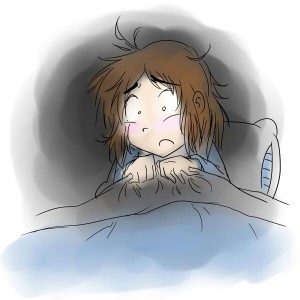Sleep deprivation leads to physiological repercussions
 Students lean forward, heads in their hands, feigning interest as their teacher dims the lights and turns on the projector, eyes closing as they drift off in a vain struggle to recover from the sleepless night before.
Students lean forward, heads in their hands, feigning interest as their teacher dims the lights and turns on the projector, eyes closing as they drift off in a vain struggle to recover from the sleepless night before.
According to a survey of 60 students at Peninsula High, 59 percent sleep an average of six hours or less per night. 16 percent reported sleeping four hours or less per night.
According to Cornell Center for Materials Research (CCMR), James B. Mass, Rebecca S. Robbins and Sharon R. Driscoll, doctors at Cornell University stated that a high school student getting less than 9.25 hours of sleep per night is considered “sleep deprived.”
Maas, Robbins and Driscoll claim that “the biggest and most prevalent [cause of sleep deprivation] is our society’s persistent belief that sleep is a luxury rather than a necessity.” Prolonged sleep deprivation causes negative impacts to a person’s overall health and thus quality of life.
“When you’re less awake, it’s harder for you to focus,” sleep disorder physician Lawrence Kneisley, M.D. said. “It’s like having a glass of wine or beer.”
CCMR also reported that a study performed at the University of Luebeck in Germany by Dr. Jam Born concluded that people who get less than six hours of sleep per night have “50 percent less resistance to viral infection than those getting eight hours of sleep.” Additionally, Dr. Sheldon Cohen from Carnegie Mellon University confirmed that people who receive less than seven hours of sleep per night are three times more likely to catch a cold than people who sleep for longer hours.
“High school students need between nine and ten hours of sleep, more than elementary and junior high students need,” Kneisley said. “It’s pretty hard since kids have homework and other after-school activities but they should put more priority to their sleep; it should be illegal for schools to be starting as early as seven because kids are just not fully awake during that time.”
CCMR stated that researchers at the University of Chicago and Columbia University have also confirmed that those who sleep less than five hours per night are 50 percent more likely to become obese. Other studies have provided deeper insight, demonstrating that sleep deprivation causes the hormone leptin to decrease in the brain and ghrelin to increase in the stomach, leading to an unbalanced appetite and a higher chance of craving carbs, sugars and oily foods.
“The effects of sleep deprivation are really drastic in the short run,” Kniesley said. “A few nights of inadequate sleep can do a lot of damage. If students are not getting enough sleep during the week, they should try to catch up on the weekend.”
At the University of Chicago, a study was conducted with healthy men “with no risk factor for diabetes.” A single week of inadequate sleep caused the men to become pre-diabetic. Researchers concluded that inadequate sleep led to an overactive central nervous system in the men, impairing the pancreas’s ability to produce a sufficient amount of insulin to regulate glucose levels.
“It is pretty hard to be getting a good amount of sleep since there is so much homework to do and it is difficult to manage my time well,” junior Casey Harik said. “People say that we need to be getting a lot of sleep, but it is not easy when there is a list of stuff you have to get done before the day is over.”
Studies established that with inadequate sleep, the body produces an increased amount of stress hormones, causing arteriosclerosis, which increases the risk of heart attack and stroke. Arteriosclerosis has also been proven to cause hypertension, muscle loss, increased fat storage, loss of bone mass and a lowered production of growth hormone.
“It’s understandable with all the time pressure, but everything… improves when you get more sleep,” Psychology AP teacher John Wheeler said.

